Premium Only Content
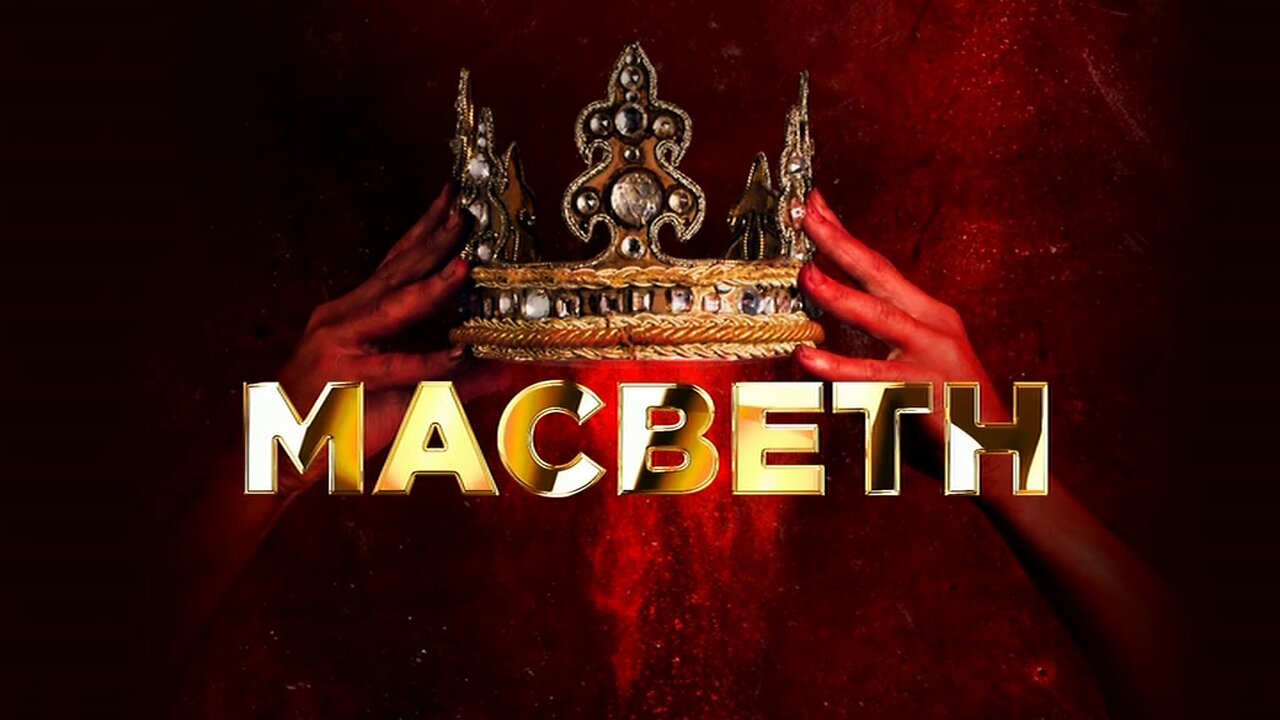
Verdi's Macbeth Act I-II (Royal Opera House 2018)
Composer: Giuseppe Verdi
Librettist: Francesco Maria Piave
Premiere: Original version: 14 March 1847, Florence (Teatro della Pergola)
Language: Italian
Synopsis: https://www.opera-arias.com/verdi/macbeth/synopsis/
Libretto: https://www.opera-arias.com/verdi/macbeth/libretto/
Translation in English: https://www.opera-arias.com/verdi/macbeth/libretto/english/
Cast & Characters:
Željko Lučić as Macbeth
Anna Netrebko as Lady Macbeth
Ildebrando D'Arcangelo as Banco
Yusif Eyvazov as Macduff
Konu Kim as Malcom
Francesca Chiejina as Dama di Lady Macbeth
Simon Shibambu as Doctor
Jonathan Fisher as Servant
Royal Opera Chorus and The Orchestra of the Royal Opera House
Conductor Antonio Pappano
Director Phyllida Lloyd
Macbeth is an opera in four acts by Giuseppe Verdi, with an Italian libretto by Francesco Maria Piave and additions by Andrea Maffei, based on William Shakespeare's play of the same name. Written for the Teatro della Pergola in Florence, it was Verdi's tenth opera and premiered on 14 March 1847. Macbeth was the first Shakespeare play that Verdi adapted for the operatic stage. The Royal Opera’s production uses Verdi’s 1865 Paris revision of the opera, which includes Lady Macbeth’s riveting aria ‘La luce langue’.
After the success of Attila in 1846, by which time the composer had become well established, Macbeth came before the great successes of 1851 to 1853 (Rigoletto, Il trovatore and La traviata) which propelled him into universal fame. Verdi’s life-long love affair with Shakespeare’s works began with Macbeth, a play he considered to be ‘one of the greatest creations of man’. With his librettist Francesco Maria Piave Verdi set out to create ‘something out of the ordinary’. Their success is borne out in every bar of a score that sees Verdi at his most theatrical: it bristles with demonic energy. As sources, Shakespeare's plays provided Verdi with lifelong inspiration: some, such as an adaption of King Lear (as Re Lear) were never realized, but he wrote his two final operas using Othello as the basis for Otello (1887) and The Merry Wives of Windsor as the basis for Falstaff (1893).
ACT I
Scene 1: A wood
Returning from a victory, Macbeth is greeted by witches who hail him not only by his rightful title, Thane of Glamis, but also as Thane of Cawdor and future king. They hail his companion Banquo as the ancestor of a line of kings. Messengers from the king greet Macbeth as Thane of Cawdor, explaining that the previous holder of the title has been executed. Macbeth broods over the other prophecy, but decides not to lift his hand against the king, while Banquo reflects that such prophecies could be a trap leading to destruction.
Scene 2: A hall in Macbeth's castle
Lady Macbeth reads the letter in which Macbeth relates these events, and eagerly awaits his return, so that she can strengthen his resolve to obtain the crown. She greets with delight the news that King Duncan intends to pass the night at the castle, and when Macbeth arrives, easily convinces him to murder the king. Duncan appears with his retinue, including his son, Malcolm. On his way to commit the murder, Macbeth has a hallucination, seeing a dagger in the air, and strange noises accompany the deed. Stricken with terror and guilt, he is unable to take back the dagger which he has inadvertently brought with him. Lady Macbeth derides his fear, puts back the dagger and tells him to wash his hands and assume an appearance of innocence. Knocking at the gate heralds the arrival of Macduff and Banquo. Macduff goes to call the king while Banquo muses on the dreadful night, full of portents. Macduff's announcement of the murder provokes horror and cries to heaven for vengeance from all, including Macbeth and Lady Macbeth.
ACT II
Scene 1: A room in Macbeth's castle
Macbeth confesses to his wife that he is brooding over the witches' prophecy that Banquo's descendants will be kings, and resolves to have him killed. Lady Macbeth exults that their claim to the throne will soon be unchallenged, even if at the cost of more killing.
Scene 2: A park outside Macbeth's castle
Banquo's forebodings are fulfilled when he is set upon and killed, but his son Fleance escapes.
Scene 3: A hall in the castle
A banquet is in progress and Lady Macbeth invites the guests to drink. One of the murderers reports that Banquo has been killed, but Fleance has escaped. Macbeth, about to take his seat, is confronted by Banquo's ghost, which only he can see. The guests are puzzled by his horror, but he recovers when the ghost vanishes and Lady Macbeth resumes her song in an attempt to restore the interrupted conviviality. But the ghost reappears and Macbeth's terror arouses the suspicions of the guests. Macduff decides to flee and Macbeth resolves to visit the witches again.
-
 4:20:21
4:20:21
Nerdrotic
6 hours ago $19.49 earnedDaradevil Born Again, Comics Industry CRASH, Neu-Hollywood REBUILD | Friday Night Tights #337
71.4K12 -
 1:32:34
1:32:34
Glenn Greenwald
2 hours agoThe Future of Gaza With Abubaker Abed; Journalist Sam Husseini On His Physical Expulsion From Blinken’s Briefing & Biden’s Gaza Legacy | System Update #391
20.7K27 -
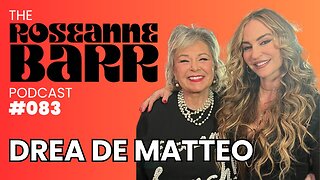 LIVE
LIVE
Roseanne Barr
4 hours ago $2.83 earnedWe are so F*cking Punk Rock! with Drea de Matteo | The Roseanne Barr Podcast #83
2,366 watching -
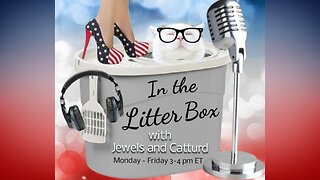 1:04:58
1:04:58
In The Litter Box w/ Jewels & Catturd
1 day agoNo Tax On Tips! | In the Litter Box w/ Jewels & Catturd – Ep. 722 – 1/17/2025
119K31 -
 5:35:39
5:35:39
Dr Disrespect
9 hours ago🔴LIVE - DR DISRESPECT - WARZONE - CRAZY CHALLENGES
147K30 -
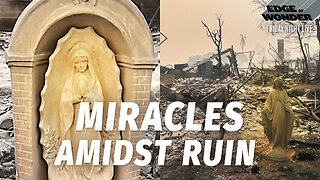 1:16:30
1:16:30
Edge of Wonder
5 hours agoLA Fire Updates: Miracles Amidst the Devastation
10K2 -
 54:54
54:54
LFA TV
9 hours agoBanning Mystery of the Ages | TRUMPET DAILY 1.17.25 7pm
13.8K1 -
 DVR
DVR
2 MIKES LIVE
3 hours ago2 MIKES LIVE #168 Open Mike Friday!
14.2K2 -
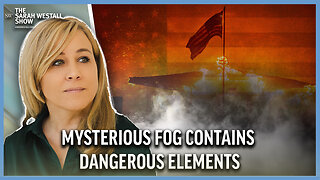 1:05:11
1:05:11
Sarah Westall
4 hours agoMysterious Fog and California Wildfires Both Contain Dangerous Elements w/ Dr Robert Young & Hazen
19.2K6 -
 1:40:48
1:40:48
Mally_Mouse
3 hours agoLet's Play!! -- Stardew Valley pt. 23!
19.6K